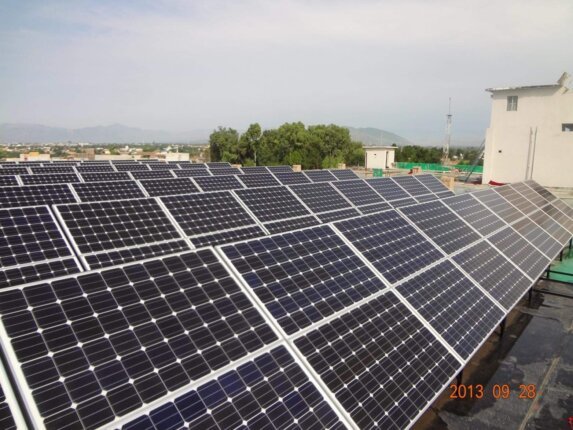ISLAMABAD – The federal government is preparing to end Pakistan’s solar net metering system, a move that could drastically reshape the country’s residential and commercial renewable energy landscape.
According to official sources, the Power Division has finalized a draft policy that replaces net metering with gross metering — a system under which all solar-generated electricity is sold to the national grid at a fixed, much lower rate, rather than allowing users to offset it against their own consumption.
🔁 Net Metering vs Gross Metering
-
Net Metering (Current System): Users can deduct the units they generate from the units they consume — effectively lowering their electricity bills.
-
Gross Metering (Proposed System): All solar electricity goes to the grid, and users buy back what they need at market rates. No self-consumption offset.
📉 Sharp Drop in Solar Buyback Price
Under the draft policy:
-
The new buyback rate is proposed at Rs. 11.33/unit, down from the current Rs. 27/unit — a nearly 60% reduction.
-
The buyback rate would be tied to one-third of the standard electricity tariff, meaning future adjustments will also remain far below market rates.
-
Those already enrolled in net metering will not be affected and can continue to receive the existing rates under their agreements.
💸 Govt Justification: Financial Imbalance
Officials say the net metering system has placed a Rs. 159 billion financial burden on other consumers — including:
-
Rs. 103 billion from paying higher rates to solar panel users
-
Remaining impact from cross-subsidies and system inefficiencies
The Power Division argues that the current setup disproportionately benefits solar adopters, shifting costs onto regular electricity users. Gross metering, it claims, would “level the playing field” and promote equitable energy distribution.
🌞 Future Solar Goals
Despite the change, the government plans to add up to 8,500 MW of solar energy to the national grid under the new gross metering model.
The policy draft is awaiting review by NEPRA. Once cleared, it will be sent to the federal cabinet for final approval.
⚠️ Consumer Concerns Mount
The proposed rollback has triggered alarm among solar users, energy experts, and environmental advocates who argue that:
-
The move could discourage new solar adoption
-
Return on investment (ROI) for solar installations would plummet
-
It contradicts global climate goals and renewable energy incentives
Civil society groups and industry stakeholders are expected to push back as the policy progresses through official channels.




